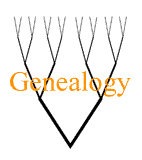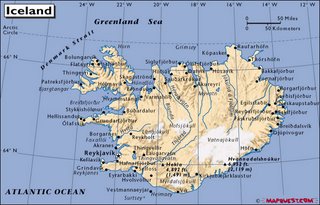Any reasonable earthman may be impelled to surmise that any similarly-gifted alien chancing upon this beautiful-looking “pale blue dot”, a puny resident of the universe’s Milky Way, might be stultified in grave wonder when he takes a closer look and realizes that its inhabitants are locked in mortal self-assured mutual destruction. Appearing too eager to drive down the inexorable path of self-annihilation.
But what is not easily discernible is that this same species is a hopeful one. Infused in his nature as one of his emergency passions, he is eternally and inveterately hopeful, regardless of the countless vicissitudes confronting him. At times maybe reacting out of fear, but definitely as part of the inborn instinct of self-survival.
Thus, amidst all these troubling developments, a good many humans continue on with the task of finding ways and means to improve the common lot of humankind. People searching and discovering novel ways to extend the life of man, improve his cognitive skills, assist in his dominion over creation, and overall, improving how he can experience life.
 One such global endeavor is the tracking and recording of the human genome, man’s complete set of genetic information which includes his DNA and RNA. Already scores of organizations are thick in the progress of tracking down to the gene level certain common diseases and predispositions that man has been plagued with, with the earnest hope of finding not only cures for them, but eventually of preventing their onset by learning about genomes in a family’s genealogy and looking for possible prevention on that level.
One such global endeavor is the tracking and recording of the human genome, man’s complete set of genetic information which includes his DNA and RNA. Already scores of organizations are thick in the progress of tracking down to the gene level certain common diseases and predispositions that man has been plagued with, with the earnest hope of finding not only cures for them, but eventually of preventing their onset by learning about genomes in a family’s genealogy and looking for possible prevention on that level. Thus the study of one’s family history, or genealogy, usually borne out of curiosity has taken on more profound dimensions and is now being engaged as an integral component in this big joust to combat human diseases.
Thus the study of one’s family history, or genealogy, usually borne out of curiosity has taken on more profound dimensions and is now being engaged as an integral component in this big joust to combat human diseases.As one intermittently preoccupied with my own family’s genealogy, this new development certainly buoys one’s spirits to concoct grandiose dreams of someday seeing this little hobby or avocation take on an exalted place as one of man’s critical tools in his deep strides toward improving his species’ progeny.
And what is happening in Iceland today shows the extent and promise that this project brings.
 And this island nation, tucked close to the icy North Pole, is most unique and apropos in many ways, for precisely this kind of project.
And this island nation, tucked close to the icy North Pole, is most unique and apropos in many ways, for precisely this kind of project.It is a small nation with population of only 275,000. And its public health system has been most thorough and meticulous keeping individual medical records since 1915.
About 80% of the present population can trace their lineage, all the way back 1200 years ago, when a few hundred Vikings and some Celts settled in the island. Thus, genealogy has been an integral part of family culture and tradition.
Being a rather geographically isolated place, there has not been much migration to the island since the first settlement, making the population as homogeneous as one can get. And because of this isolation outside disasters such as famine and plagues have been precluded from adding new genetic input into the local gene pool.
Homogeneity is believed to be a big help in studying genetic disorders in populations, rather than just on individuals since it is further claimed that change or mutation over time occurs in populations not in individuals.
All these factors pooled together have made possible the following development.
Started in 2000, the government now has created a centralized national health database of all the Icelandic peoples' genealogical, genetic, and personal medical information. Thus, family histories are included in this database. It was the initial intent of Parliament to gather genetic data of all Icelanders to facilitate the identification of genetic traits and inherited diseases with the ultimate purpose of finding drugs to arrest such diseases at the gene level.
deCODE, the company contracted by the government to undertake this study, hopes to market to interested parties whatever important and useful information may be derived, including but not limited to pharmaceutical companies and health care providers
No comments:
Post a Comment
Welcome. Your comments are appreciated.